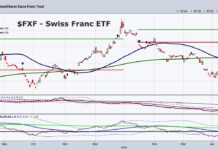Jeff Gundlach is the founder and principal fund manager at DoubleLine Capital. He and his firm manage just over $100 Billion in assets, primarily bond funds.
He is one of the most watched investment managers, as his research and analysis have proven to be top-notch over the years.
Notably, he is not a ‘perma-bear,’ one of those talking heads who is always predicting calamity around the corner. So his recent comments bear repeating – in a recent presentation, he shared the opinion that the S&P 500 would end 2018 without a positive return. He did not predict a crash – his analysis was more lukewarm than inflammatory. Notably, he does not believe a recession is imminent, he simply believes that equities have gotten ahead of underlying economic activity.
Rob Arnott is another prominent investor, who runs a research firm that is hired by other research firms to help them with their analysis. In a recent interview he talked about his worries about bubbles.
Specifically, he noted that Bitcoin went from 6 cents in 2011 to over $16,000 recently – even the Dutch tulip mania would be impressed. He is concerned by what he sees as inflated asset values in a variety of areas, bitcoin being one extreme example.
Both Gundlach and Arnott believe that emerging market stocks offer a better risk/reward ratio than in the U.S. and even in Europe. They are also essentially optimistic about long-term growth, i.e. they are not perennial pessimists. They are careful in their comments to point out that the global growth story remains, and that U.S. stock valuations are just too high to be considered attractive.
Arnott points out that in 1990, 8 of the 10 largest companies in the world by market cap were in Japan. That was a terrible time to invest in Japan – the stock market crashed concurrently with the real estate market. Today, 29 years later, their market is still 40% lower than it was in 1990.
Today, 8 of the 10 largest companies in the world by market cap are in the U.S. It is certainly reasonable that a few of the largest companies would be in the U.S.. And it is almost unthinkable that the U.S. stock market would repeat the Nikkei’s 29 years of losses. But from a planning perspective, it certainly seems that now is not the time to load up on U.S. stocks.
Sources:
Bitcoin and foreign yield comments
Japan comparison from 1990 to U.S. today
Any opinions expressed herein are solely those of the author, and do not in any way represent the views or opinions of any other person or entity.








